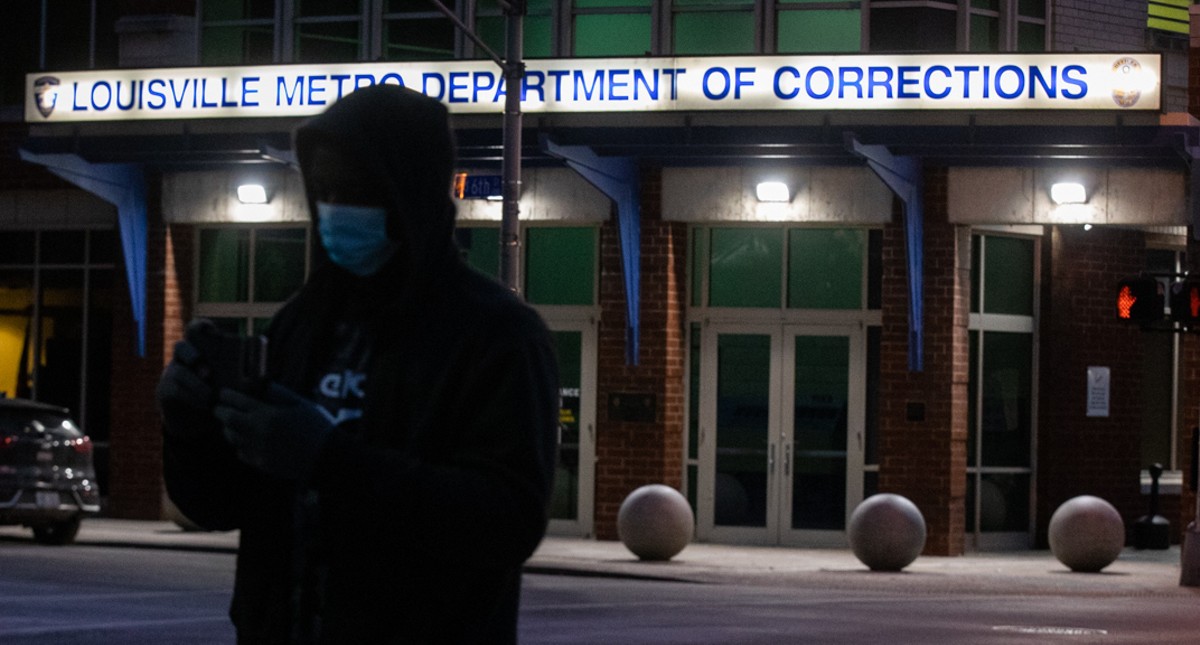Let me start this note by saying that not everyone in jail is guilty. In fact, according to Louisville jail policy committee data from Oct. 2021, about 75% of inmates at that time were awaiting trial, and the presumption is innocent until proven guilty.
Why do I say this? Because people are dying in local jails and, to me, it feels like we’re just not mad enough about it, and I think it’s because, as a society, we think those in jail are throwaway people.
I’m not sure what is happening at Metro Corrections but the number of inmate deaths is frightening. As of this writing, eight inmates have died since late November.
Being arrested and detained in Metro Corrections should not be the judge, jury and sentence of death. What on earth is happening in our local jail system? We should all be asking this question and we should be getting answers instead of more excuses or radio silence.
Metro Corrections has claimed a shortage of staffing has contributed to the deaths.
Sure, short staffing creates dangerous situations, but we’re talking about eight people in such a short period of time; it’s really fucking weird. Does Metro have a serial killer?
I’m only half-joking, because this situation is both odd and really frightening. At any time, caught in the wrong moment, any citizen in Metro Louisville could find themselves on the wrong side of the jailhouse. Is this what we face? We need to be concerned and vocal about getting the solution.
The causes of jail deaths have been blamed on drugs, on overcrowding, understaffing, underpaying, on medical issues, on… blah, blah, blah. Yes, all of these things are true and yet, the mystery of why this many people have died in such a small span of time remains a mystery.
Metro Corrections Director Dwayne Clark is retiring this coming month with Lt. Col. Jerry Collins replacing him as the new director. Collins is familiar to Metro Corrections, having retired from there in 2021 to work as jail commander in the Clark County Sheriff’s Office in Indiana.
The FBI is investigating at least one death, while Mayor Greg Fischer has been his usual flat, and dispassionate self, but he has hired new people to deal with the issue. He has hired Amy Hess and Ron Heady to serve as Public Services assistant chiefs, and Gary Raney, a jail death expert (whatever that means).
Despite these actions, the city isn’t moving quickly enough, and inmate deaths keep happening. Clark has been named in a class-action lawsuit about the length of time inmates are being held after their supposed release dates. This lawsuit was affirmed in a Nov. 24 ruling by the Sixth Circuit Court of Appeals. Even the Metro Corrections FOP Lodge 77 president has pointed fingers at Clark over mismanagement of the jail. But, of course, the FOP loves a scapegoat.
On Tuesday, Metro Corrections announced new drug-searching security measures, but these don’t seem to realistically address what is happening. The new measures include open and copied non-confidential mail, opened confidential correspondence in the presence of an inmate, no magazines or books from third parties allowed, new body scanners, increased frisk and search (surely this will go well), more K-9 sweeps and new schedules for inmate work aides. Meh, OK, but how do these measures address a problem that really has yet to be named directly? Not all of the deaths are drug related. At least three have been called suicides.
Can all of these deaths be the fault of management? Yes, management has a lot to do with the behavior of their staff, but there seems to be something more happening beyond poor management. Gross negligence is definitely a part of it.
Fischer’s new Public Services assistant chiefs, Hess and Heady, will focus on six areas of concern. According to the city those are:
- Inmate medical care
- Working with partners to reduce the number of inmates being held
- Recruitment and staffing
- Policy, training and curriculum development
- Leadership development and succession planning
- Accountability and discipline.
I guess, for the general public and those at risk in the jail system, the game of wait and see continues. There isn’t much for the general public to do, but we do deserve answers as to why these people continue to die in the care of those who are supposed to preserve and protect them either during, before or after their trials and potential sentencing.
The mayoral candidates have weighed in on the topic and called it “unacceptable,” “a crisis of inaction” and have asked for greater transparency, new leadership, and one candidate even asked for the creation of a Citizens Commission. Bottom line, something needs to change immediately.
As a city, we have to be mad about this. We have to get answers, and while we’re waiting, please return to the refrain, “We’re all innocent until proven guilty.” I want that statement to be true again instead of the opposite. When we believe that innocence is first, before proof of guilt, then we will hopefully and should have more compassion toward those caught in the system who are at real risk of poor outcomes and possible death. It could be any one of us.
At a time when the citizenry has little faith in its police and its justice system, these deaths don’t bode well. A root change is long overdue.
Keep Louisville interesting and support LEO Weekly by subscribing to our newsletter here. In return, you’ll receive news with an edge and the latest on where to eat, drink and hang out in Derby City.
Follow us on Facebook, Twitter and Instagram.







